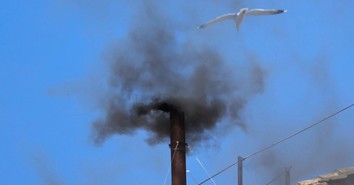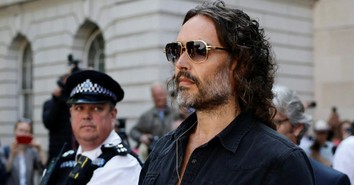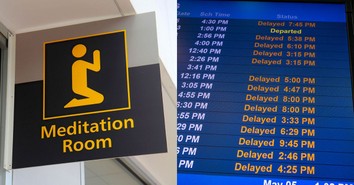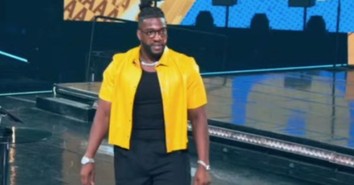9/11: A Reflection From Eyewitnesses
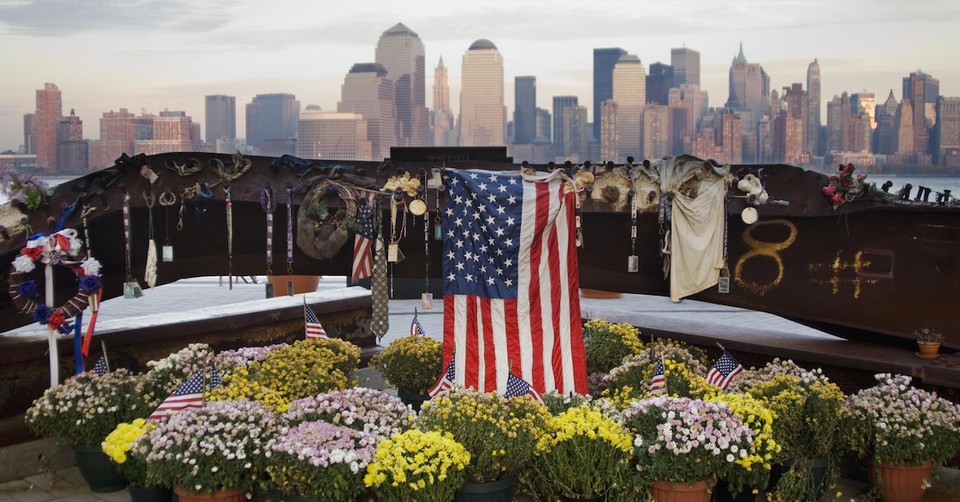
9/11 was my generation's Kennedy assassination. I don’t think that runs the risk of being much of an exaggeration.
That is, it was the singular event belonging to history that traumatized me and everyone else in or around my age. It was a day that every American felt, as the perpetrators wanted us to be terrified. We were all looking out, shivering, into the enormous void of the abyss, begging for an answer to the question “Why?”
While it was a day that we must certainly never forget, I can’t say it was a day I was anxious to return my memory and concentration to. But the menacing hand of curiosity reached out and pulled me into a variety of interviews I had the honor of conducting on my “Eyewitness History” podcast.
It was here that I interviewed a number of amazing people who had incredible first-hand, on-the-ground, and in-the-towers stories to share. I want to dispense some of these stories now.
Dave Paventi: "I prayed the whole way down the stairs."
It was back in May of 2022, that I published an interview I did with Dave Paventi. Dave was in the North Tower that day, on the 81st floor. As he told me, he was a banker from Charlotte, North Carolina, working on that fateful Tuesday morning. I asked him about 7:59 a.m., when the first American Airlines Flight 11 plane, hijacked by Mohamed Atta, went through skies that were known to air traffic controllers as “severe clear.” The plane hit floors 93 through 99, killing all 92 passengers immediately.
Only 12 floors below, Paventi told me last year in our interview that he “was in a conference room, it was an interior conference room to the building, we had recently moved up to” and that “it was a very crisp, cool, beautiful fall day”.
When the plane did hit, Paventi told me that they were “in [the]conference room, kind of in the middle of the building. There was the room and the hallway and a wall of offices behind that and then the glass from the outside of the building.”
Paventi went on to say that “there was a long conference table in the room, and there was a long hanging light that hung over that table.” He then said, “I tell you all that, because when the impact happened, as this is, obviously as a pre-911 event, you have no frame of reference for, you know, someone's attacking the country or whatever is going on.”
He told me that at that moment, he was thinking, “Why in God's name did this building just move, like literally like 20 feet? It felt like the building lunged forward.”
He then remembered that the building “returned back, and it started to kind of shake until it right itself. And so in the middle of all this, I look up and I see this, the light above the table is just swinging back and forth. So I'm thinking this is an earthquake, right?”
Surprisingly, Paventi said that he didn’t recall hearing the actual impact and that he “didn’t remember hearing explosions or anything like that, although I'm sure there was one. So I kind of ducked under the table. Everyone else in the room kind of jumped up and just hightailed it out of the room. So, you know, I walk out of that conference room, and I'm trying to get to the stairwell."
One salient memory that Paventi told me about was the thunderous silence reverberating throughout that stairwell. He said that “[New Yorkers] are boisterous and loud and opinionated, and all that. So you would think that this stairwell would be a ruckus of some sort, right?” He went on to say, “Actually, you could hear a pin drop. It was very, very weird. There were some people crying, because obviously some of these folks had been through a similar situation in 93 when the towers were bombed.” He said that the silence was “very, very eerie.”
As I was interviewing him, I felt as if I was in that stairwell next to him with what he told me next. He said that there was a “weird smell in the stairwell” that he couldn’t place and that wasn’t terribly strong, but was certainly impossible not to notice. It was jet fuel. He said that it wasn't very strong like when “you’re pumping gas."
It was here that Paventi’s faith played a major role. He told me in a follow-up interview that he “prayed the whole way down the stairs, it was hard not to. So much uncertainty with what was going on, I had to lean on someone.”
Finally, Paventi gets out of the stairwell and into the lobby. He said that it “looked like a scene from Die Hard”. He went on to say that “it looked like a bomb had gone off in the lobby of the building. Because there were shattered windows, there was glass and stuff on the ground. There were just things laying all over the place. They're pushing us to get us out of the building. He then said, “I'm pretty sure that we walked through what was a window? I don't think we went out a door, because I think everything had just blown open at that point.”
“So we got outside. We're in this courtyard area that was in front of the that was, I guess it's technically the backside of the building. It's facing towards Midtown. I believe in the street that was right there was Church Street. My hotel was right across Church Street. It was the Hilton millennium if I remember correctly.” Paventi then recollected that “there was someone out there that was kind of directing traffic and she's like ‘Just get out of here. Just run. Get away from the building, don't turn around and just go’. So we start to run across this concrete courtyard area.” David Paventi closed this part of our interview by saying that he turned around and looked over [his]shoulder. The whole top of the building is on fire. It looked like a birthday candle.”
Michael O'Connell (Retired Lieutenant from NYC Fire Department):" [I think about] our brothers underneath that pile that we couldn't get to. It's a memory that's etched into my brain..."
In my interview with Michael O'Connell, which I released in July of last year, I asked him to take our mutual audience through his experiences of first getting the call about the World Trade Center back in 2001. He told me that it was at the age of 25 that he was still in the academy and “doing field training at Engine 273, Ladder 129 in Flushing, Queens.” O’Connell went on to tell me that on 9/11, he “ was home on Long Island and a friend had called [who] wasn't a fireman. But he had a private business in Brooklyn and he had seen from his office that the first tower had been hit and that there was smoke coming from the tower.” He then said that he turned, “.. the TV on and just like most people when you're watching the scene of what's going on, you see the second plane go in and right then and there, realizing what it is and being a terrorist attack and knowing that the first one wasn't an accident.” He then remarked that, “from there, we know what we have to do, every cop, firemen, civil service, we all got recalled into the city.” O’Connell closed that part of our interview by concluding that as he was “...living on Long Island Nassau County. I worked in Flushing Queens. It is probably the fastest I’ve ever made it to my firehouse. I've probably made it there in about 15 minutes."
The most haunting recollection from this interview, in my opinion, has to be his story about the pass alarms.
So, a PASS alarm, or a personal alert safety system was, according to fireengineering.com, created and implemented so that the firefighter… would be able to summon or alert others for help. As O’Connell himself told me, “if you’re laid motionless for a certain period of time, [the PASS alarm] lets out a loud screeching noise, to basically tell us, as the guys that are in the job, ‘somebody's down, the pass alarms are going off, we can hear them, they might not be able to communicate to us. But we can go get to them because the alarm is being sounded’.”
In an admission that still sends shivers down my spine, O’Connell lamented that, “when we first arrived on that scene, in the hours and maybe even a few days that passed, that's all we heard were those pass alarms.”
O’Connell then told me, at some length that, “That was our brothers underneath that pile that we couldn't get to. It's a memory that's etched into my brain, it will never go away. It's something that, when I do these interviews I talk about because you're talking about selfless human beings that kind of put everything aside their wives, children, own safety, their own, you know, passions in life, to run into that day to make sure that they got somebody out and they accomplished more than I will ever in my life.”
He went on to say that the firefighters tried their best to get human life out. O’Connell told me that “... they did it extremely successfully, they saved 1000s of human beings from dying that day and then to hear their alarms going off, and they were no longer with us. It's a memory of mine that I just hold near and dear to my heart, basically, let it be known to myself that ‘who I have to be as a human being? Try and be selfless. Try and be a good human being, try and take care of others, try and give more than I take.’”
O’Connell closed by remarking that, “...those pass alarms going off is something that will forever be etched into my brain and those guys, those 343 brothers of mine, along with the police department, Port Authority. Anybody that gave their lives that day to help others, it's a day that forever changed my life for sure.“
As a result of O’Connell’s heroic efforts, he “got diagnosed with a rare autoimmune disease called ‘sarcoidosis’ ”. It was then that he came to be involved with another, who I happened to interview as well, John Feal.
John Feal: "When the second plane hit, we knew there was something wrong."
It was only a couple months ago that I released my interview with 9/11 first responder, John Feal.
Feal also hailed from Long Island, New York, and was both a skilled carpenter and a specialist in demolition work. As a dedicated 9/11 responder, he found himself at the site on September 17, where an unfortunate incident led to a piece of steel crushing his left foot. Despite the severity of his injury, which had been classified as "life-threatening and catastrophic," he encountered two rejections when applying for compensation from the September 11th Relief Fund. His applications were turned down because the injury took place ninety-six hours after the initial event, rendering him ineligible for assistance.
Echoing a similar question I asked O’Connell, I wanted to know where and when he got the call to go to ground zero. He told me that, “On 9/11 I was about a half an hour 45 minutes outside of New York City in Nanuet, doing a large demolition job. Over our radio, we heard that a plane hit the tower and kept working. We saw many conflicting reports in the beginning.” Feal went on to tell me that “when the second plane hit, we knew there was something wrong. I gave everybody the option of going home or getting a hotel and everybody went home. I was the last one to leave. I never went home.”
He then told me that on the way back to the office, he stopped on the Throgs Neck bridge and there were no cars on the road.” He then said that from”.. the Throgs Neck bridge to lower Manhattan you could see the shroom and I was in awe. It was so surreal.”
Feal then went on to tell me that he continued working with the owner of the company but got hurt on the 17th when “roughly 1000 pounds of steel crushed my left foot. I spent 11 weeks in the hospital with gangrene and sepsis, and wound up losing half of it.”
He then told me that the injury has “haunted” him. He said, “It's weird because I forget about the injury. I forget what happened to me. Yet, I'm suddenly reminded every time I have a surgery on my other foot or my knee, and it still doesn't really register. While from the waist down, my body fails me on the waist up, and especially my brain and my heart is stronger than ever. While it's taken its toll, mentally, I continue to do therapy and get past what I have to do every day to help people.”
Feal would go on to found the FealGood Foundation. The foundation’s thoroughly admirable mission is to “...assist all emergency personnel, including but not limited to, firefighters, police officers, nurses, volunteers, sanitation workers, transportation workers and construction workers, within the United States who have been injured, or face serious injury due to action or omission, in the course of their duties or within their everyday lives.” It was here that Feal and his team, which would include O’Connell, would trudge the halls of congress to push various pieces of legislation through on behalf of 9/11 victims and their families.
The full litany of accomplishments that his foundation has done would be far too much for one speech and certainly for one article, so I would simply want to refer you to our interview where he discusses these in some detail.
These remarkable names are just a few of the people I have had the honor of speaking with and hearing stories from. I also want to acknowledge the following people:
Tom Wilson, a former police officer who, after exposure to deadly debris following the collapse of the Twin Towers, was diagnosed with cancer and had to have one-third of his tongue removed.
Anne-Marie Principe, an activist who works with NGOs and private companies to raise money and was part of the 9/11 NY Detox Project.
Ivonne Sanchez, a retired FDNY 911 first responder. She's also a cancer survivor and member of the FealGood Foundation. She tells an amazing story about her time arriving at Ground Zero, dealing with the after effects, which included breast cancer, and her work to get the Zadroga bill passed.
These horrific attacks and its aftermath still loom over many more than 20 years after it happened. As we hold true to the perennial admonishment to “never forget” and remember the 2,996 victims who lost their lives that day, let’s also take a moment to dip our flag, pause, and salute these phenomenal men and women. Let’s honor the ones who bravely gave their lives for others on that fateful day as a solemn reminder of the selfless heroism that emerged from the tragedy of 9/11.
Photo courtesy: ©GettyImages/Tetra Images
Josh Cohen is a journalist and commentator living out of the Midwest. He has written for a number of reputable publications, including TownHall. He joins Scott Rank as a member of the Partheneon podcast network, with his podcast on history, called "Eyewitness History!" His fascination with history is in the story of our existence and how it is told. Keeping the tradition of storytelling alive in History On The Net is what drives him.
Originally published September 11, 2023.

